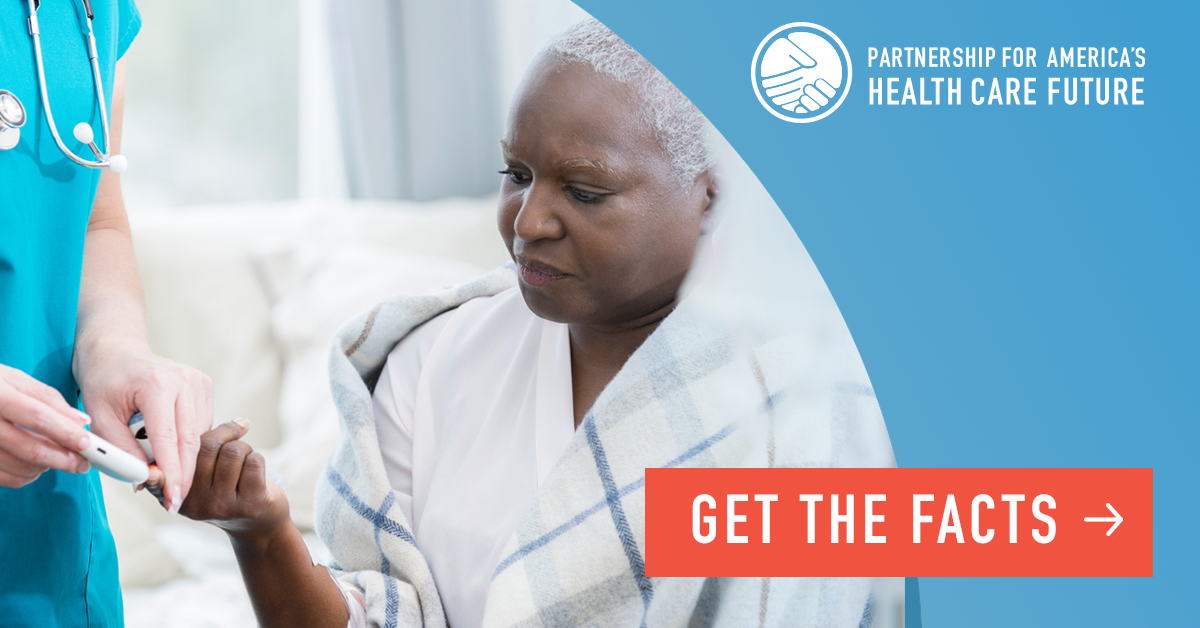New Polls Show ‘Growing Opposition’ To Medicare For All

WASHINGTON – As 2020 presidential hopefuls continue to face tough questions about their support for new government-controlled health insurance systems, POLITICO reports this morning on the “growing opposition to ‘Medicare for All’” as two new polls – one national and another taken in the critical early Democratic caucus state of Iowa – show declining support for the one-size-fits-all government-run system. They report:
“MEDICARE FOR ALL” CONTINUES TO LOSE LUSTER – That’s according to a WSJ/NBC News poll released Sunday, which found growing opposition to [Senator Bernie] Sanders’ signature idea to replace private insurance with a government-run health system. Fifty-six percent of registered voters say they oppose a Medicare for All plan that replaces private insurance, up from 49 percent in a July version of the poll … Iowa voters cooler on Medicare for All, too. A new Des Moines Register/CNN/Mediacom Iowa poll of likely Democratic caucusgoers found that just 41 percent said a government-run health system should be national policy. Meanwhile, 28 percent of respondents feared it could cost Democrats the election, and 24 percent said it was bad policy.
The latest public opinion data comes on the heels of yet another national poll released this month by the Kaiser Family Foundation, which “probes Democrats’ views about the general approaches to expanding health coverage and lowering costs” and finds that “[m]ost Democrats and Democratic-leaning independents (55%) say they prefer a candidate who would build on the Affordable Care Act to achieve those goals. Fewer (40%) prefer a candidate who would replace the ACA with a Medicare-for-all plan.” A separate poll released by Kaiser in July found support for Medicare for all on the decline, as “a larger share of Democrats and Democratic-leaning independents would prefer lawmakers build on the existing ACA” and “the share of Democrats who now say they ‘strongly favor’ a national Medicare-for-all plan is down” 12 percentage points in the three months since Kaiser last asked the question.
Voter Vitals – a new quarterly tracking poll conducted nationwide and in 2020 battleground states – finds that a majority of Democratic voters are unwilling to pay any more in taxes for universal coverage and a supermajority of Democrats (69 percent) support building and improving on what we have today over new government insurance systems. “A majority of Democratic, swing, and Republican voters are clear that they are not willing to pay any more in taxes for universal coverage. They’re looking for health care policies that lower rising health care costs more than anything else,” said Phillip Morris, Partner of Locust Street Group, who conducted the survey on behalf of the Partnership for America’s Health Care Future.
Meanwhile, as some try to paint the public option as a “moderate” alternative to Medicare for all, 2020 presidential hopefuls and others acknowledge it would ultimately lead down the same path to a one-size-fits-all system – with all the same unaffordable costs. In a story headlined “How a Medicare Buy-In or Public Option Could Threaten Obamacare,” The New York Times reports that the public option “could also lead to a 10 percent increase in premiums for the remaining pool of insured people.” The Times adds:
More younger people with expensive medical conditions have enrolled than insurers expected, and insurers would have to increase premiums to cover their costs, Mr. Haltmeyer said. Tricia Neuman, a senior vice president at the Kaiser Family Foundation, which studies insurance markets, said a government buy-in that attracted older Americans could indeed raise premiums for those who remained in the A.C.A. markets, especially if those consumers had high medical costs … Dr. David Blumenthal, the president of the Commonwealth Fund, a foundation that funds health care research, said a government plan that attracted people with expensive conditions could prove costly. “You might, as a taxpayer, become concerned that they would be more like high-risk pools,” he said.
And, as Dr. Scott Atlas of Stanford University explains in The Wall Street Journal, such a system would raise costs for families and “mainly erode, or ‘crowd out,’ private insurance, rather than provide coverage to the uninsured.” He writes:
The public option would cause premiums for private insurance to skyrocket because of underpayment by government insurance compared with costs for services … A single-payer option is not a moderate, compromise proposal. Its inevitable consequence is the death of affordable private insurance. Even Democratic presidential candidates calling for “a public option” openly admitted in the recent debate that it would inevitably lead to a single-payer-dominated system … Massive taxation would be needed to expand Medicare, whether optionally or not.
A flash poll conducted by Forbes Tate Partners on behalf of the Partnership for America’s Health Care Future reveals that voters prioritize improving our current health care system over offering a new government insurance system, often referred to as the “public option.” The poll also finds that voters across party lines prefer a presidential candidate focused on making those improvements over one who wants to expand government insurance systems, and majorities “believe that negative outcomes, such as increased taxes and fewer employer-based options, are more likely to occur than positive ones if a government health care program that people could choose were put into place – and most believe it would be unlikely to improve their health care or that of their family.”
###